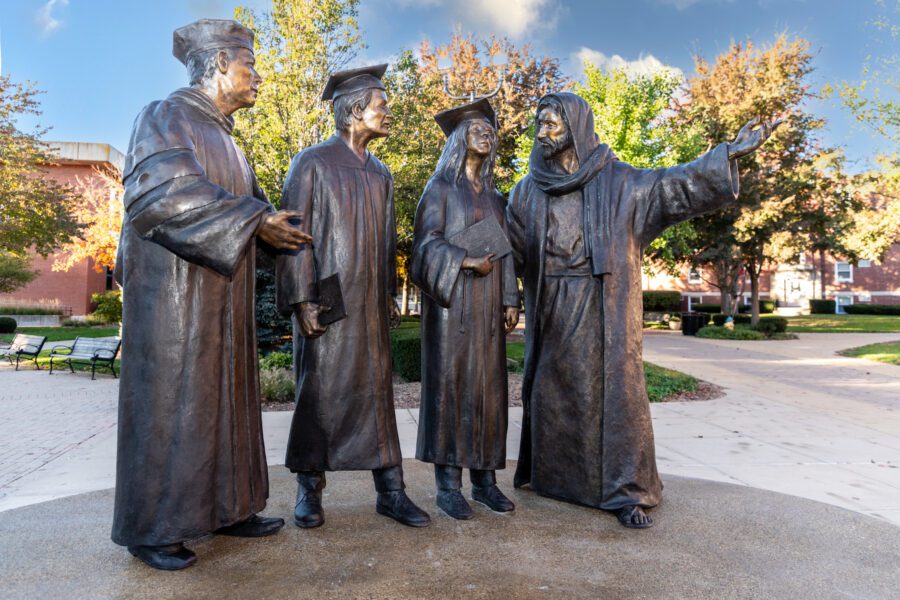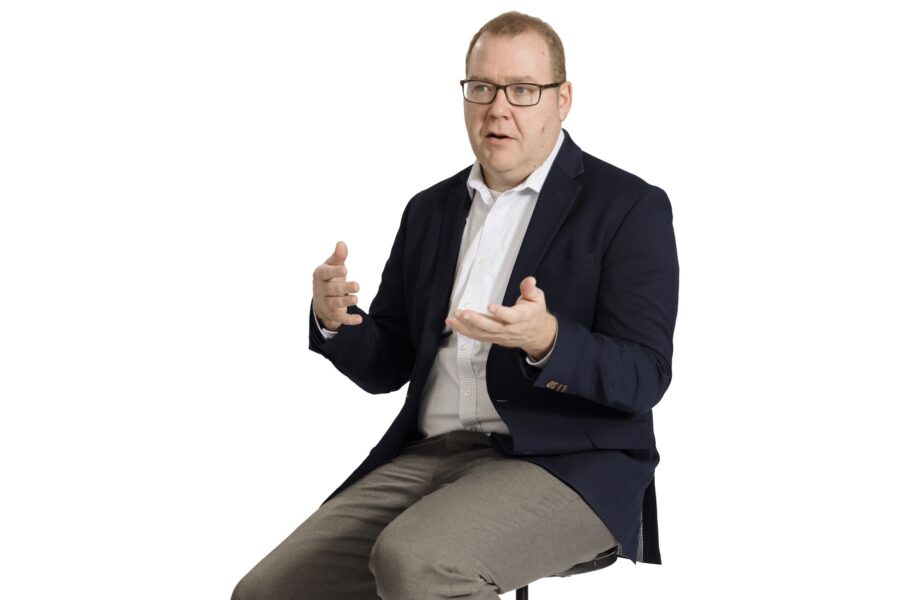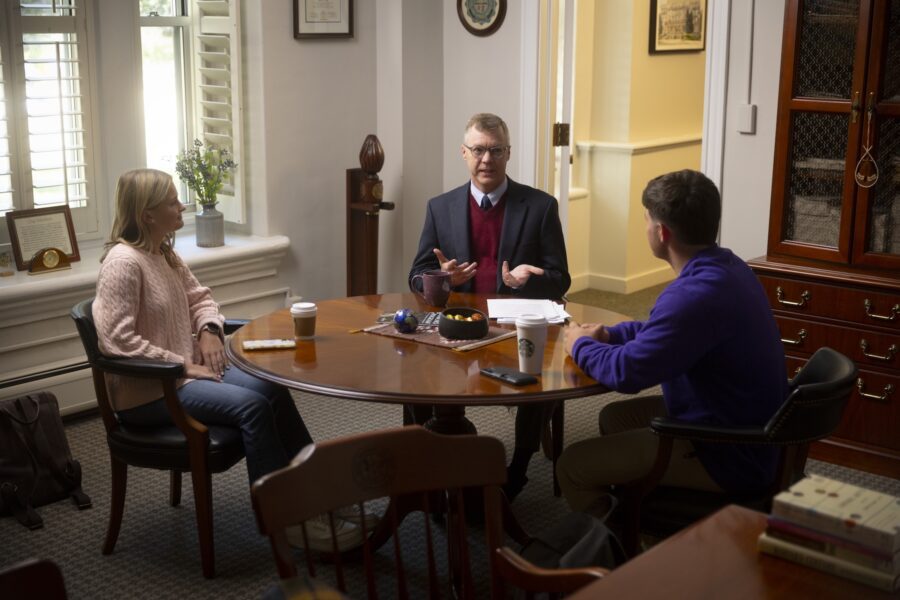
Purpose — your reason to act or exist. Individuals and organizations often live in ambiguity over this hugely consequential topic. Then, disaster. Folklore says, “Aim at nothing, and you’ll hit it.” You might not be at risk of ruining your life, but you could waste it.
Purpose seems more deep and clear in elders than youth. Purpose also persists longer in religious communities than secular ones, for God assigns purpose: “We are God’s handiwork,” Ephesians 2:10 says, and He has prepared good works in advance for us to do.
This makes Olivet a purveyor of purpose to the perfect target audience: college students.
As a young man, I had it wrong. I thought purpose was revealed by ease. Not laziness but ease. When given a task, natural gifts and cultivated talents shine. Others identify them. Self-awareness grows. We possess traits others don’t. It feels like we didn’t choose them; they were deposited in us. For one person, math is easy. For another, it’s public speaking or leading or such beautiful attunement for compassion that heals people. What comes easy can assign purpose.
But that’s a project only halfway done.
Ease might reveal purpose, but its intended use is for difficulty. Some get this twisted. Struggle doesn’t contradict purpose; it might confirm it. As University Chaplain Antonio Marshall ’13/’16 M.A./’19 M.Div. recently illustrated in chapel, purpose during hardship is why we admire Mother Theresa, Martin Luther King Jr. and Dietrich Bonhoeffer. They aren’t icons from ease but trouble.
So here’s a paradox. If you want clarity over purpose, find an obstacle, a truly worthy one, and give yourself to hurdling it.
In his seminal book, Flow: The Psychology of Optimal Experience, author Mihaly Csikszentmihalyi explains the most satisfying life requires challenge, not just skill. A high-skill, low-challenge environment breeds boredom. That person needs new purpose. Also, a low-skill, high-challenge life creates stress. That’s OK only if a person can rise to the occasion. If not, this is misalignment of purpose.
Young men illustrate this well. Jordan Peterson, author of 12 Rules for Life, is the most viral public intellectual of our time. Unexpectedly, young men primarily populate his audience, including his ticket-paying audience, sitting through three-hour lectures. Why? He speculates that in the aggregate — certainly not in all cases — young men more often wilt under the sheer multitude of life choices, throwing them into staggering vertigo, needier of clarity. Disproportionately, young men recede into video games or opt out of the workforce, not knowing who or why they are.
Peterson’s message to young men is countercultural: Don’t coddle such a man; give him the heaviest responsibility he can possibly carry for his family, workplace or community. He realizes just how much others depend upon him. This burden awakens purpose and fulfillment. He’ll never squander a day again.
If you’re not a young man, here is another pathway into purpose. Warren Berger invites a jolting reflection to refine your purpose in his book, A More Beautiful Question: The Power of Inquiry To Spark Breakthrough Ideas: In a work context, what would another, more effective person do if they replaced you? Or, in your personal life, what would the one you admire change in you if they took control of your life? A person I asked answered, “joy” — more deeply felt, radiating, consistent joy.
The mere question can pivot purpose.
I’m honored to work with 1,000 full-time and part- time colleagues on a profound purpose. Olivet isn’t a diploma factory. That’s far too small a task. It won’t get me out of bed on a Monday morning. Instead, we aspire — just imagine it! — to actually partner with God in helping students discover His plan for their lives, then equip them to do it!
To follow the calling of God is difficult, but that’s the point. His power operates in our weakness. Life becomes a great adventure.
From Olivet The Magazine, On Purpose – Winter 2024. Read the full issue HERE.





